- July 26, 2024
-
-
Loading

Loading
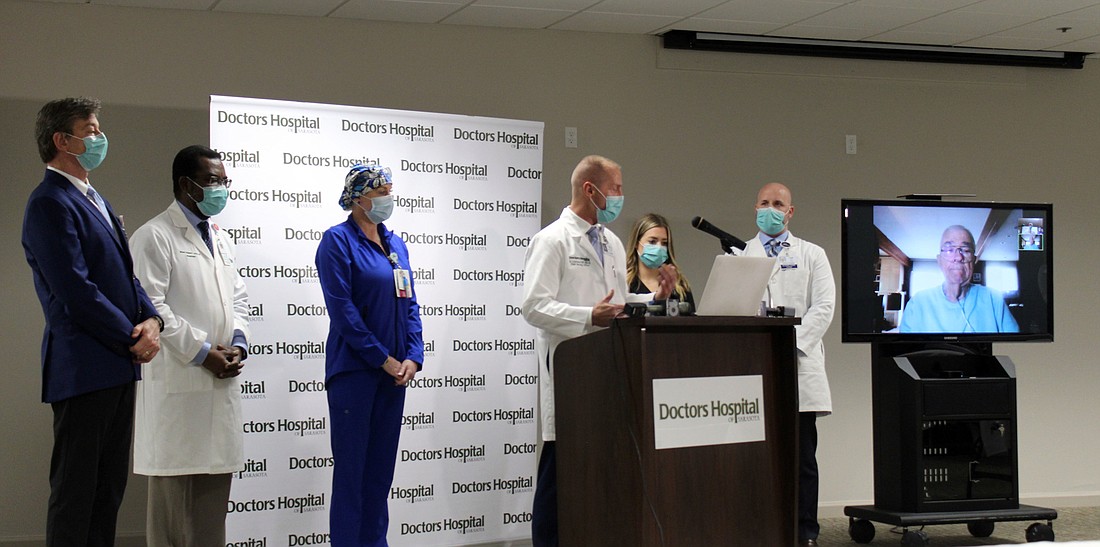
Progressive Care Unit Nurse Jamie Florio was nervous when she first heard that Doctors Hospital had a patient with COVID-19 under her care.
She had just returned to work after maternity leave.
“I was certainly scared with my baby at home,” Florio said. “Everyone has people at home, so we were all nervous. We weren’t expecting anything to come back positive. Everything was changing … so for me, and I’m sure other nurses, the fear of the unknown was major.”
That was a year ago.
Doctors Hospital diagnosed and began caring for the first COVID-19 patient in Florida on Feb. 29, 2020. At the time, it was one of about 65 cases in the United States.
Chief Medical Officer Dr. Michael Schandorf-Lartey said most of those cases were citizens who had traveled outside the U.S., been diagnosed with COVID-19 and returned for treatment.
At the time, doctors had two criteria for determining COVID-19 cases: severe acute respiratory illness and a travel history from a place that is known to have COVID-19 cases.
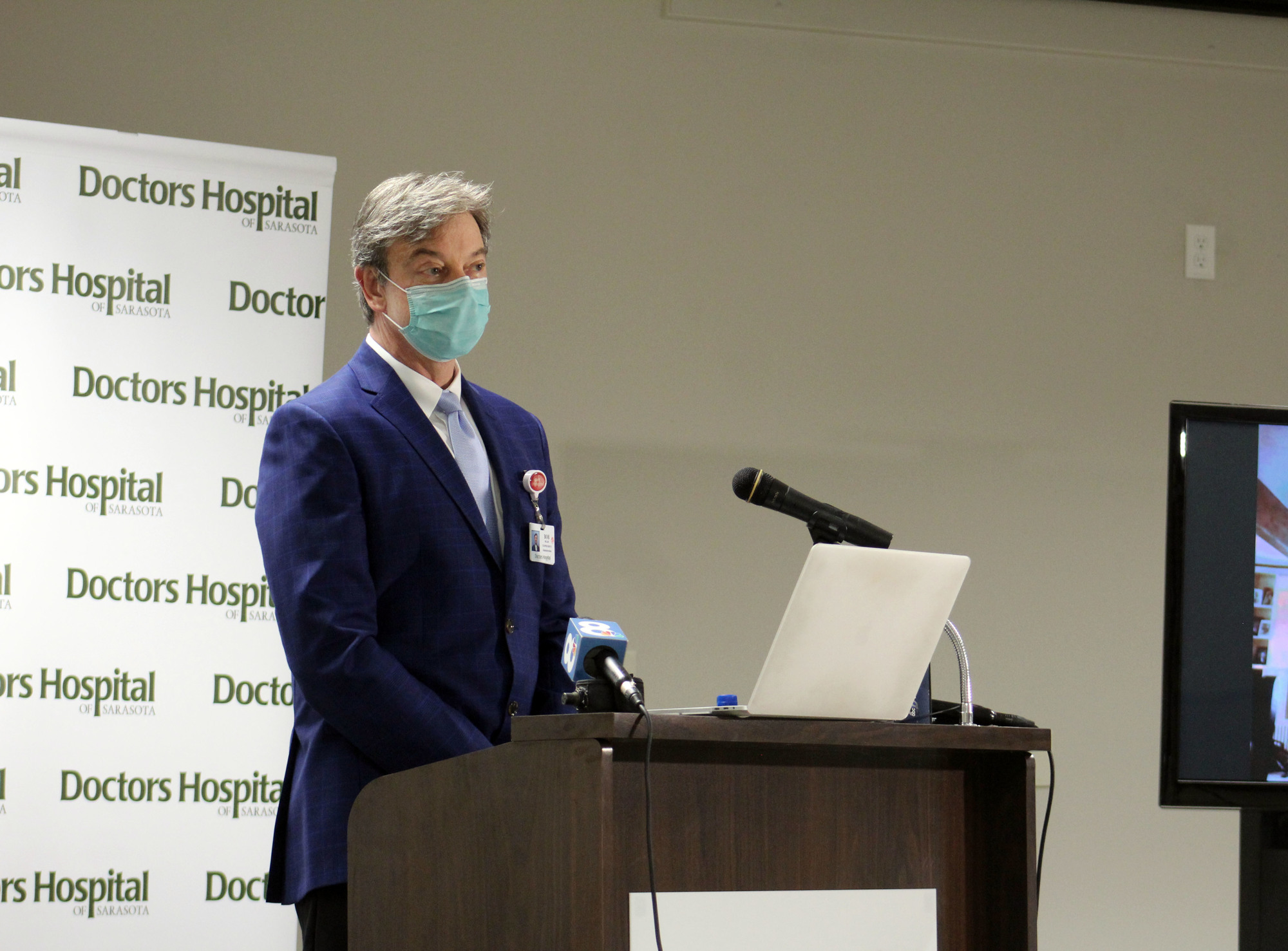
However, the night before the hospital tested the Manatee County man, the Centers for Disease Control and Prevention added a third category: a person with severe acute respiratory illness with no known travel history.
“As you can imagine, that pretty much turned our world upside down,” Schandorf-Lartey said. “That defines a lot of patients we typically treat, and we see those types of patients all the time.”
When the hospital tested its first patient, Schandorf-Lartey said he did not think the test was going to be positive. So, when he got the results, he was shocked.
“So we were scrambling to decided, ‘What do we do? Where do we go,’” he said.
The first thing the hospital had to do was define how to identify patients at risk and how to quickly test them.
At that time, tests had to be sent to a state health lab, delaying results by days. Doctors had to take all necessary safety precautions with every patient who could have COVID-19 until they received the results.
About 60 staff members who came in contact with the patient were sent home to quarantine. Now, the hospital can test patients within 15 minutes. The Manatee County man in his 60s was released on March 6, 2020.
CEO Robert Meade said that because his was one of the first hospitals in the U.S. to receive a positive case, the CDC said it could not give out information. However, he still felt an obligation to tell in-hospital patients before they read it in a newspaper.
Weekend vaccine clinic coming to Van Wezel
So, the hospital wrote and hand-delivered letters to each patient explaining the situation. That letter was leaked to the community, which caused a lot of backlash, Meade said.
“If we hadn’t done anything, we probably wouldn’t have taken as much heat, but we felt that was the right thing to do,” he said. “The CDC was and is doing the best they possibly can. There is no anger toward the CDC. That was new to them as well.”
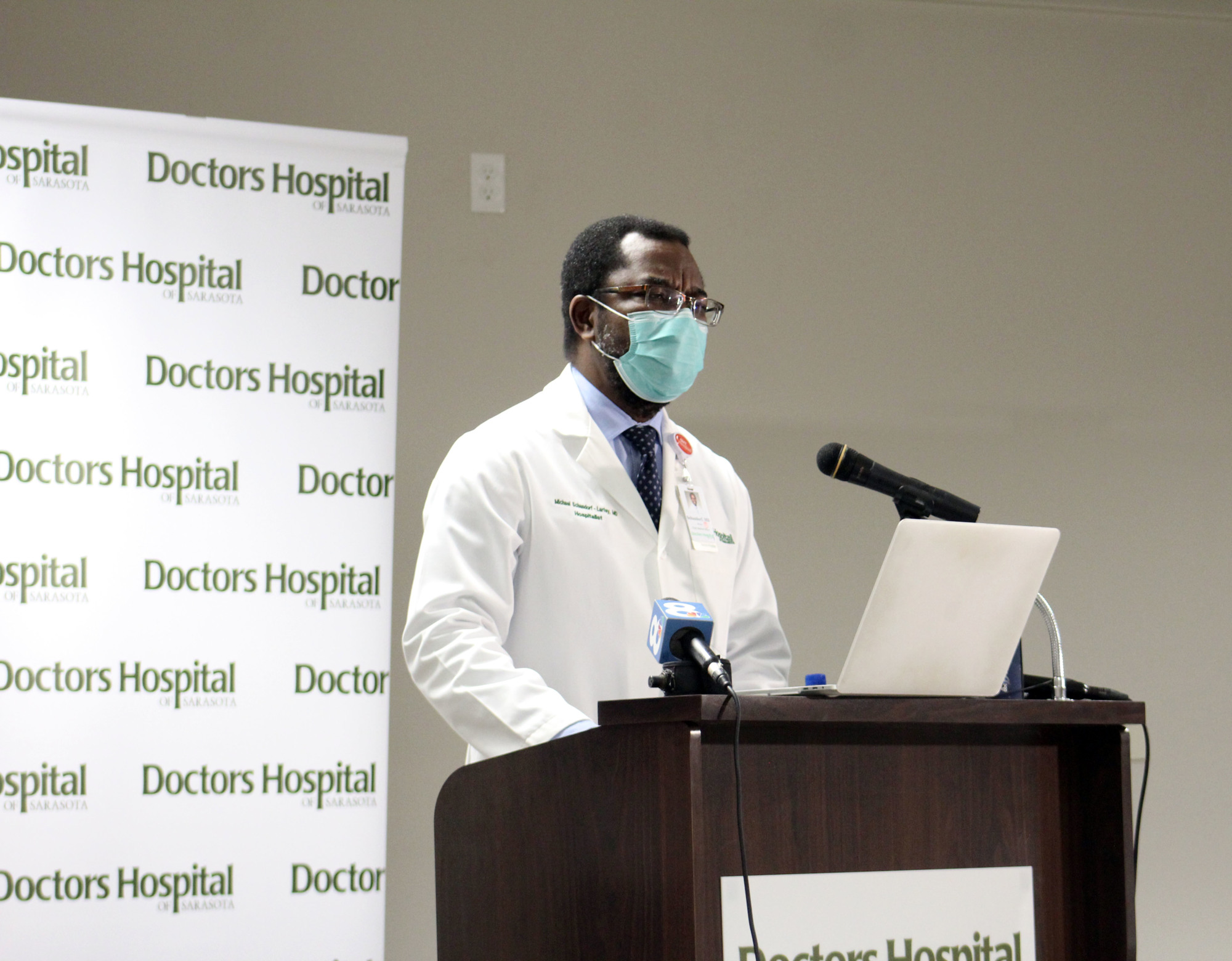
Chief Nursing Officer Todd Haner said the hospital also had to figure out how to keep its staff safe through employee and patient screening and the use of proper Personal Protective Equipment.
Haner said the hospital didn’t know how much PPE it would be able to acquire or how long it would last so staff had to ration the supplies.
Throughout the past year, Haner said no staff members contracted COVID-19 while working. Some contracted it in the community, however.
Meade said that because the hospital was the first in the state, leaders were able to help other hospitals prepare. However, because they were the first, it was difficult to keep up with the rapidly changing body of knowledge.
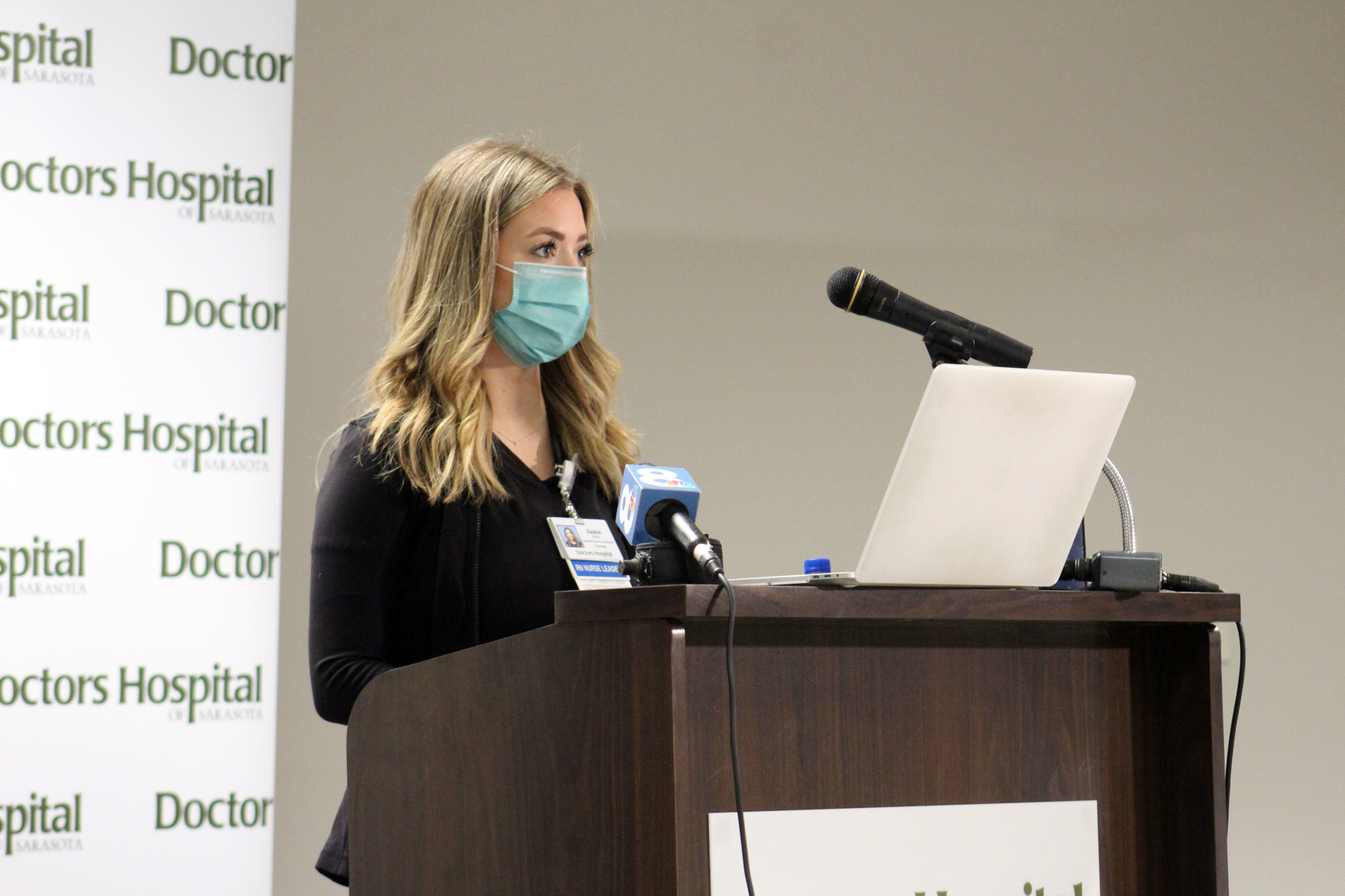
“We knew the disease was rapidly evolving and the body of knowledge about it shifted very quickly, so you cannot assume that what was true yesterday was true today,” Schandorf-Lartey said. “One of the things that physicians pride themselves on is knowing what to do for their patient and having the skill to do it. This kind of proved us lacking in that respect.”
One of the unforeseen tolls the pandemic has taken, is the emotional wear, registered nurse Rachael Herc said.
Families weren’t allowed to visit the hospital, so nurses not only gave physical care to their patients, but also emotional support. She said the nurses tried to be the link between patients and families by facilitating Zooms or meetings through windows.
“You can only do so much,” Herc said. “But when you’re holding someone’s hand and watching the wife sit outside a window, it’s terrible and it’s taken a toll on us.”
One patient that Herc helped recover was former doctor Bob Ross who was hospitalized at the end of November.
“It was so bad. I’d never seen anyone so sick as I felt,” Ross said of COVID-19. “I thought death was a reasonable option.”
After several weeks in the hospital, Ross was discharged Dec. 24. Without the hospital staff, Ross said he would’ve “been long gone.”
As it stands, he has permanent lung damage and uses an inhaler and takes several pills a day to help regain his strength.
He said he feels about 35-40% back to full health. An avid hiker, he aims to walk a little bit farther each day — something he says wouldn’t have been possible without the help of Herc and other Doctors Hospital Staff.
Although it’s been a stressful time for the hospital staff, Florio said it comes with the territory and she’s grateful to help people.
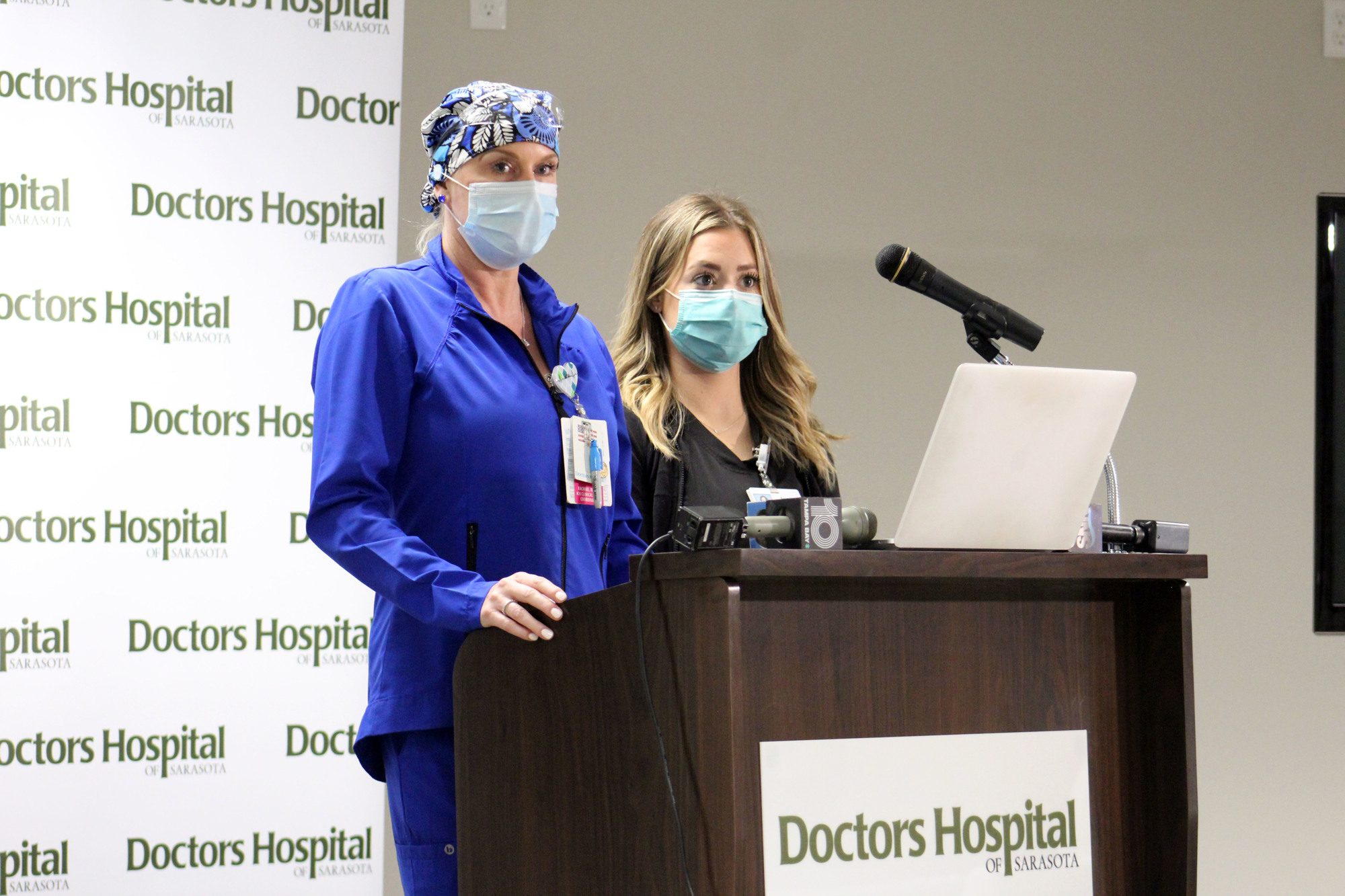
“We’ve always understood that the patient is the priority,” Florio said. “As nurses, we came into this field to help patients and we’ve continued to do so throughout the pandemic. We’re scared for our family at home, but they’re in the hospitals without their families so we’ve certainly tried to become that for them.”
Now, doctors say there is less mortality thanks to several new ways to treat patients, such as with convalescent plasma, the antiviral medication Remdesivir and the anti-inflammatory agent Dexamethasone.
Schandorf-Lartey said the COVID-19 vaccine is the final push against the illness.
The hospital in December set up a vaccination clinic that gave 841 residents first and second doses. A second round of vaccinations began Friday morning.
“As we get more people vaccinated, we achieve that herd immunity and then we will be further along in fighting this virus,” Haner said.
However, Meade said the public should still continue to mask up even if they have been vaccinated because they still can carry the virus.